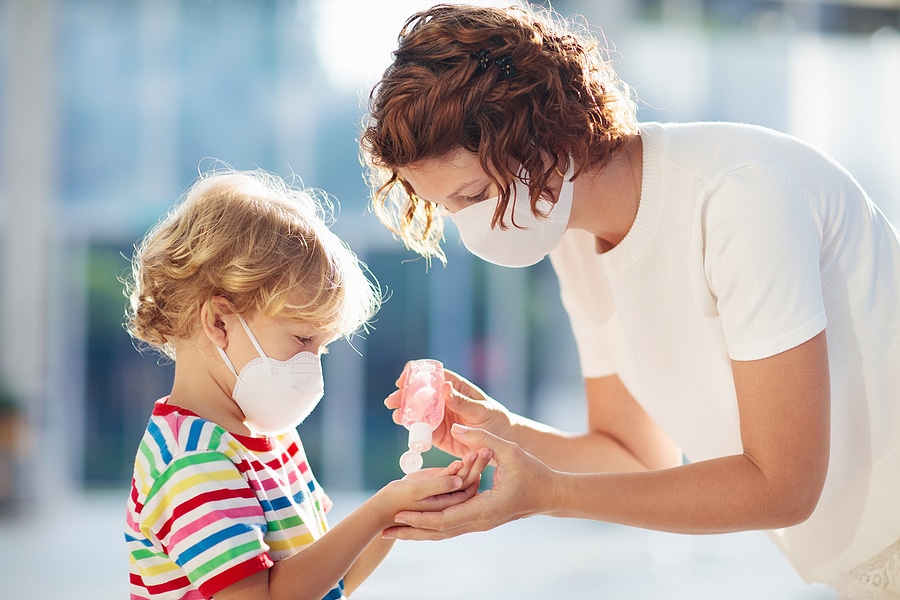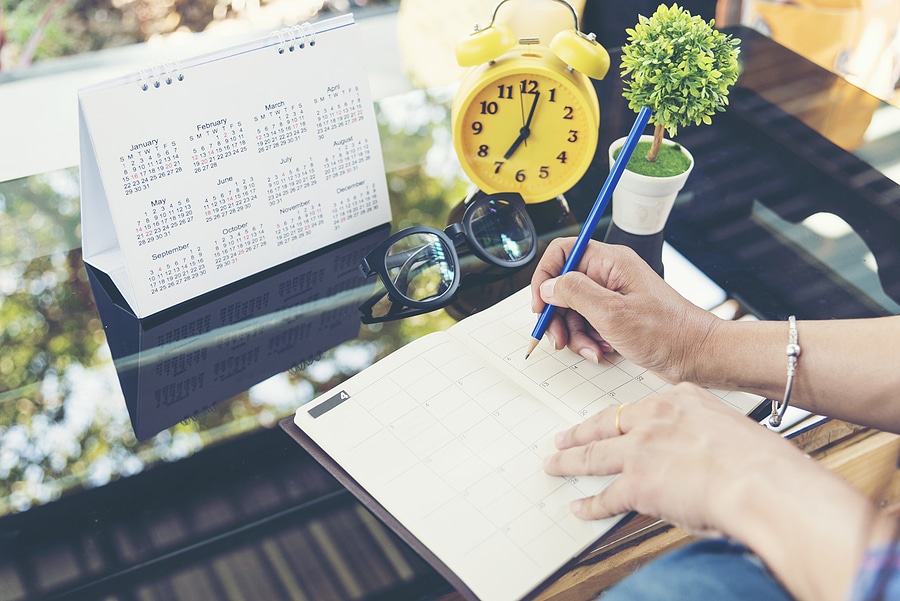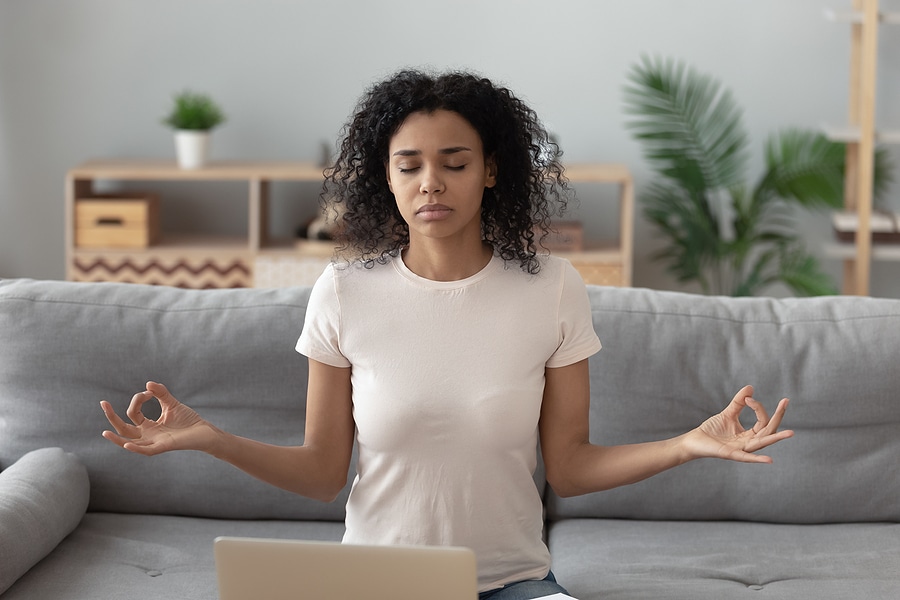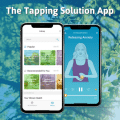We’ve all seen and heard the recommendations flooding the media about how to take care of our physical health during this challenging time.
 We’re supposed to wash our hands, maintain social distance and wear a mask whenever distancing isn’t possible. Simple enough right?
We’re supposed to wash our hands, maintain social distance and wear a mask whenever distancing isn’t possible. Simple enough right?
But what about our mental health? What can we do to safeguard our sanity when everything we’ve ever known has been flipped on its head?
This is no longer about “getting through” a couple of months of disruption to our lives and routines. Back in March, that survival approach seemed reasonable enough.
“Just hang in there and do whatever you can to get by…”
But as time passes, it becomes increasingly apparent that Covid isn’t going away anytime soon.
For those of us with a history of physical, emotional or sexual trauma, the inescapability and pervasive nature of this virus feels unsettlingly familiar and reminds us of what we lived through and felt back then.
Just like the traumatic events we experienced, it can feel like we cannot escape this virus because there is no safe place to go; we do not know if or when we might catch it or how our body may respond – and we do not know if or when all this might end.
This uncertainty stirs and re-awakens all of our old coping mechanisms. Consequently, all the things we did back then to survive, we now see echoed in how we’re coping today.
 Letting things get really messy, cleaning compulsively, consuming copious amounts of food, binging on Netflix, drinking too much, using drugs, shopping online, I’ve heard it all from clients over the past few months…
Letting things get really messy, cleaning compulsively, consuming copious amounts of food, binging on Netflix, drinking too much, using drugs, shopping online, I’ve heard it all from clients over the past few months…
If you’ve done any of these things, you probably know by now that it’s not an effective solution that’s going to benefit your life in the long term.
So, in an effort to support your mental health as you navigate these challenging times, I’ve put together a list of 7 Self-Care Habits that you can try out today.
SELF-CARE HABIT # 1 – Use EFT Tapping to process and release emotions and fears.

You knew this would be #1 right? lol 
If I had to pick just one thing for you to take away from this article, it would be for you to add just a few minutes of EFT Tapping to your every-day routine.
That’s because with everything going on around us, it’s more important than ever to manage our levels of stress and anxiety.
I know that the idea of tapping by yourself can be overwhelming. I hear from new clients every day that they don’t know where to begin or what to say.
Using The Tapping Solution App is a great way to get started and be guided in what to say. Equally, you can choose to work with a professional who can guide you in the process.
If you do choose to tap on your own, but don’t know where to start, the simplest way to tackle this issue is to make a list of the main stressors in your life right now. Once you’ve made a list of your main concerns, mark each one with a score 0 -10 to reflect how strongly you feel it.
You might include things like:
- I’m worried about losing my job. (9)
- How will I juggle working and teaching my kids? (10)
- My mother is elderly and sick. I miss her, but I don’t want to risk visiting her and getting her sick because she has an underlying health condition. (8)
- I feel lonely because I can’t do my favorite hobby right now and I miss my friends. (7)
- I’m having to work from home and I miss the office environment. (6)
- I lost my father to Covid and I’m feeling overwhelmed by the grief. (10)
- We can’t afford to pay the rent and put food on the table. (9)
- I’m so stressed about finances and it’s bringing up all my old fears about food scarcity from when I was a kid. (8)
- My husband drinks too much and he gets really volatile. I’m so afraid. I’d think about leaving but I have nowhere to go to escape. (10)
Pick one of the items each day (starting with the 10s) and then use the app or tap on it for 5 minutes on your own. Notice how strongly you feel it to begin with. Then tap. Then check back in to see how strongly you feel it after tapping.
Here’s an example of how you could tap on your own:
Example Statement: I’m worried about losing my job (9)
1) Even though I’m worried about losing my job, I’m doing ok in this moment right now.
2) Even though I’m worried about losing my job, I choose to remember that things will work out for me somehow.
3) Even though I’m worried about losing my job and I don’t know how I’ll pay my bills, I acknowledge the fears that I’m feeling and know that I’m doing my best.
Then tap through the Tapping Points for around 5 minutes. You can keep it super simple by just repeating the sentence you originally wrote down at each tapping point. Or you can say whatever comes up for you as shown in the example below:
TH: I’m worried about losing my job.
EB: I feel this fear in my ________.
SE: I acknowledge all this fear and worry.
UE: It makes so much sense that I feel this way with everything going on.
UN: I choose to release some of it now.
CH: Letting go of this worry.
CB: So that I can breathe more easily and feel a bit more clarity.
UA: Knowing that I’m doing my best right now and that somehow I will be ok.
Take a deep breath and see if your original score has shifted now.
Tapping a little every day is a fantastic tool that you can use by yourself at no cost. It’s a habit that doesn’t take much time and is easy to add to your daily routine to help you manage your levels of stress, anxiety and overwhelm. You can tap in the car, in the shower or before bed.
However, if this pandemic is bringing up past traumatic experiences very strongly for you, it may be a good time to seek professional help from a coach or therapist. If you’d like to find out more about working with me one-on-one, you can visit my website here.
In addition, The Tapping Solution App has a whole resource section of guided meditations dedicated to helping people during Covid. You can go here to download the App for free.
SELF-CARE HABIT # 2 – Establish a daily routine

This is a habit that I’ve often struggled to create for myself, especially with young kids in the house who like to disrupt my sleep!
But, it’s also one of the most helpful habits you can develop in terms of elevating mood, regulating emotions and alleviating symptoms of depression.
So much of our schedule and routines have been disturbed by Covid. Perhaps you no longer have to commute to work and the kids are home all… the… time. 
There are so many things that are out of our control right now – goodness – I only just found out who my kids’ teachers will be this year and school starts this week!
Because of this, setting a regular schedule for sleep and establishing some basic daily routines is all the more important and can go a long way in helping build a sense of certainty and agency. In unstable and uncertain times it’s imperative for us to feel in-control of something in our lives.
You might want to try some of the following:
1) Wake up and go to sleep at a regular time (e.g. in bed by 10:30 pm and up by 6:30 am)
Studies have shown that since the start of the pandemic, people on average, have moved their schedule later by 1 1/2 hours. So if a person used to be in bed by 10 pm, now they’re likely not getting to bed until 11:30 pm and waking much later too.
The downside to this is that the quality of sleep we get before midnight is far superior to any sleep after midnight. In addition, if we sleep through daylight hours, we absorb less vitamin D which is an essential component in supporting our immune system right now. So try an earlier sleep-schedule for a week and see how you feel!
2) Choose 3 “self-care musts” for each day
 For me, this means fitting in a bike ride or other exercise for 30 minutes every day, taking a shower and journaling. When I do any of these three things, I feel an immediate boost in my mood and a big sense of accomplishment.
For me, this means fitting in a bike ride or other exercise for 30 minutes every day, taking a shower and journaling. When I do any of these three things, I feel an immediate boost in my mood and a big sense of accomplishment.
The key here, though, is to plan your day and schedule your “musts” into your calendar either ahead of time or at the very beginning of your morning, so that you don’t get busy doing everything else and risk putting them off altogether.
It’s easy to think about the things we really want to do, but unless we make a plan for our “musts”, we’re unlikely to make them happen.
Also, make sure that your “musts” are manageable and easy to achieve on any given day. If you love learning languages and you write down “must learn Spanish,” you’re likely to end up feeling frustrated and depressed. Try breaking it down to something more attainable like “spend 10 minutes practicing Spanish vocab” instead.
Some other ideas include going for a run, talking to a friend, baking, doing yoga, meditating, painting, etc.
3) Make time for real food
It’s so easy to graze and snack on high-calorie, low-nutrient foods. These can send our blood sugar through the roof and lead to energy and mood crashes later in the day.
Try prepping some easy snacks ahead of time – like baby carrots and hummus – that are easy to grab, satisfying and healthy. You can also batch cook meals like lasagne or a crock-pot stew so that you are only cooking every few days. This is a great way to save time and cut stress.
SELF-CARE HABIT # 3 – Know your limits: Learn to set and maintain healthy boundaries with yourself and others

Over-extending myself has always been a challenge for me, but never more so than during the start of this pandemic.
What I learned is that knowing my limits and boundary-setting is essential for mental health! But what does this look like?
1) Know your limits
It’s so important to recognize any tendencies you might have for things like wanting to clean when you feel under stress.
Once you recognize your patterns you can ask yourself, “What if I only do laundry once a week or only on Mondays, Wednesdays and Fridays but not during the weekend?”
Or, “What if I let the kids watch more TV than normal – as long as they finish their school assignments first?” Notice any tension or agitation you feel around these ideas.
Setting limits and putting parameters around things that might otherwise take over your life is a really healthy way to not over-extend yourself or deplete your energy. You might want to check in and see where you need to set limits or release self-judgment around things like:
- Screen time for kids
- Cleaning, vacuuming, dusting and general household mess
- Cooking
- Laundry
- Dishes
- Paying bills/checking finances
Because the truth is that your mental health is more important than whether or not your kids are watching too much TV or whether the laundry mountain is now a permanent fixture in the corner of your living room.
2) Set healthy boundaries with yourself, your kids, your spouse or your co-workers
 This can be a really tricky area, especially for people with a history of trauma, where boundaries may have been systematically threatened, crossed or violated on a regular basis.
This can be a really tricky area, especially for people with a history of trauma, where boundaries may have been systematically threatened, crossed or violated on a regular basis.
But, in this challenging time, you can support your mental health by setting clear boundaries around the following:
- Monitor your exposure to mainstream and social media news coverage
- Get the kids involved in age-appropriate chores to take some of the pressure off you
- Make sure you get enough sleep
- Tap to release self-judgment around the cleanliness of your home
- Take “sanity breaks” whenever you need them to sit alone, go for a walk or talk to a friend on the phone
- Manage your stress around work expectations – it’s ok to turn off the video on your 17th Zoom call of the day – no one will know if you lay on the floor and pet the dog while it’s all happening around you!
- Do something you love as often as you can – even if it’s coloring a kid’s coloring book for 5 minutes a day
- Say no to the weekly family Zoom cocktail hour if what you need is to take a bath or read a book
SELF-CARE HABIT # 4 – Build a sense of community
 If your goal isn’t merely to “get through” this, but to do so with some semblance of peace and sanity intact, then building a sense of community is essential.
If your goal isn’t merely to “get through” this, but to do so with some semblance of peace and sanity intact, then building a sense of community is essential.
This community will likely look different for everyone, according to their hobbies, tastes and life circumstances.
Here are a few ways you might consider building your community and support network:
- Meet a friend for a socially distant coffee or walk
- Take a Zumba, dance or other exercise class online
- Face-time or Zoom call relatives who live far away
- Call a couple of friends daily or weekly for a check-in or catch up chat on the phone
- Go to church online
- See your coach or therapist via Zoom
- Have a popcorn and old movie night with a friend where you face time each other and chat about the movie as you watch
- Join an online group where you meet virtually and regularly (like the Tapping Insiders Club!)
These are just a few ideas. As things open and close in our communities according to viral-spread levels, the uncertainty and isolation can derail us. This is why it’s so important to establish and build a sense of community and connection to make sure we feel the support of colleagues, friends and loved ones when we really need it most.
SELF-CARE HABIT # 5 – Move your body daily! (and get outside if you can!)
 As I mentioned above, this is one of my daily routine “musts”. Exercising or moving our body releases endorphins which elevate our mood. This can help stave off depression and gives a natural boost to our immune system.
As I mentioned above, this is one of my daily routine “musts”. Exercising or moving our body releases endorphins which elevate our mood. This can help stave off depression and gives a natural boost to our immune system.
It really doesn’t matter what form of movement you choose to do. All that matters is that you get your blood pumping and your body moving.
Here are a few ideas of movement you can try:
- Have a dance party in your jammies! Put on your favorite feel-good tunes and dance around your living room or kitchen – you can do this by yourself or with your family
- Take the dog out for a walk
- Go for a bike ride
- Take an online class in dance, Zumba, Qi Gong or yoga
- Play hopscotch with the kids
- Bounce on a trampoline
- Play badminton or tennis if your local laws allow
- Weed or mulch your flower beds or tend to your veggie garden
SELF-CARE HABIT # 6 – Nourish your soul

For me, this self-care habit is like the icing on top of the cake.
It includes all the things that bring us that deep, fulfilling sense of joy that lights up our lives – the type of things that make you lose track of time. When was the last time you lost track of time in a good way?
For me… this is dancing. What is it for you?
Unfortunately, so often when things get stressful or hectic, we push aside the things we love and say, “Oh, I’ll get to that when the laundry is all done.” Which of course, is something we all know will never happen!! 
But, what I’ve found through all this, is that if I don’t strike a balance between what “needs” to be done and what I “want” to do, I can end up feeling burnt-out and resentful, and that’s not good for anyone’s mental health.
And just like in self-care habit #2, it’s critically important that if I want to journal or bake or write or dance or soak in a hot bath, then I need to schedule it.
It’s no good waiting until you’re struggling with depression or loneliness to try and work out what brings you joy. It’s extremely hard to be resourceful in those moments.
So, be pro-active and make a list today of 10 things that bring you deep joy and nourish your soul. That way, you’ll have a bunch of ideas that you can pick from whenever you need some support.
SELF-CARE HABIT # 7 – Boost your immune system
 It might seem obvious to some, but boosting our natural immune system is not being talked about enough in the mainstream media right now.
It might seem obvious to some, but boosting our natural immune system is not being talked about enough in the mainstream media right now.
Yes, it’s important to take care of our health by washing our hands, but what about supporting our health from the inside out too?
80% of our immune system is directly linked to our gut biome. So, if we are to stay healthy, it’s all the more important for us to boost our gut health and support our immune system.
(Mid-Blog Post Disclaimer… **I am not a medical doctor, so please seek help if you feel unwell. Do not alter your current regimen or stop or start taking medications or supplements without first consulting a trained professional. **) 
That being said, here are some common-sense things you can do to protect your health and stay well during Covid:
- Get enough sleep
- Drink plenty of water
- Take some good quality, immune-boosting supplements like zinc, echinacea and vitamin A
- Get enough sunlight – vitamin D plays a big part in supporting our immune system
- Get enough vitamin C – either through a supplement or preferably through a balanced diet of leafy greens and a rainbow of veggies.
- Take a good probiotic to support your gut health
- Work to process and release your stress and anxiety through tapping or another healing modality
Now that you’ve read my 7 tips to help support your mental health and navigate this challenging time, I hope it’s given you a few ideas. It’s not easy, but you can and will get through this.
Please know that I’m here to support you and as ever. If you’d like my support one-on-one, you can book a free healing consultation by going here.
Karen Ortner
Which was your favorite self-care habit? It is something you can implement today? Comment below!
The post 7 Essential Self-Care Habits to Follow During Covid (Especially If You Have a History of Trauma) appeared first on The Tapping Solution.
from The Tapping Solution
https://www.thetappingsolution.com/blog/7-essential-self-care-habits-to-follow-during-covid-especially-if-you-have-a-history-of-trauma/
from https://www.thetappingsolution.com/blog
#EFT #holistic #healing



No comments:
Post a Comment